6 Self-Management Skills That You Need
Without self-management skills, you will lack the vital ingredients that'll lead you to success. It is one of the perfect ways to one can self-assess themselves in the long run.
While self-assessment is vital, one must acknowledge the need to transform in order to be your best self. These constant changes will redefine your experiences, help you grow, and boost your performance.
In fact, self-management is pretty straightforward. With time you become aware of the things that make you better and avoid things that lead to your downfall.
By now, you’re probably wondering what these skills are that we’re praising.
This article is meant to provide you with the knowledge of what these skills are. And how you can use them to manage your personal and professional life. Without further ado, let’s get started.
What is Self-Management?
Self-management is the ability to manage one’s emotions, behaviors, and thoughts in different situations. It is the capability of a person to-
-
Manage themselves to bring the best in them
-
Self-control their understanding and knowledge
The primary purpose of self-management is to improve an individual’s productivity and efficiency. Refining such skills will indeed take tremendous time and effort. But in the long term, it will make you a better person with a clear perception of their true capabilities.
6 Essential Self Management Skills You Must Have
1. Time-Management

Time, as we know, is the most valuable resource in our life.
In the fast-paced corporate world, time management is a critical element. You have to manage your task while maintaining a good work-life balance. Acquiring the necessary time-management skills will provide you with enhanced self-management skills.
Good time management will help you conquer half of the challenges better than any other strategy.
There are strategies and principles that you need to follow for good time management. Below is a list of what you can do:
1. The two-minute rule- If something takes less than 2 minutes to complete, then do it right away.
2. Acknowledge your own time- It is crucial that you invest in your own time and not unnecessarily waste it. Plan your work according to priorities and requirements.
3. The Pareto Principle- This is the 80/20 principle given by Vilfredo Pareto. The principle states that 80% of results come from 20% of the effort. And if we can maximize the 20%, we can save tremendous amounts of time while being efficient.
4. Parkinson Law- This is expressed as “Work expands to fill the time available for its completion.” The more time we give to a particular task, the longer it gets to complete it. So, assign the right amount of time to complete a task. You can earn a reasonable amount of time which you can use strategically.
5. Pomodoro Technique: Pomodoro technique is a time management process that aims to mitigate one’s exposure to distraction while at work. Distractions take up a lot of our time. And tackling them helps you save up time to prioritize critical tasks.
Moreover, invest in tools and platforms that will help you elevate your skills. Investing time in growing your skills will reap great benefits in the future.
Learn More: 9 Time Management Techniques for Better Engagement
2. Stress-Management

Ah, stress management itself can be pretty stressful (isn’t it?). And it is one of the most “burning” topics among managers and leaders.
With modernization, there are constant changes in the way we work. This makes it challenging to adapt and improvise in the short term. It can create chaos and decrease your ability to deal with a situation calmly.
But one has to keep on going even when undergoing stress. A person has to be strategic and conquer stress with a calm mind. It is one of the crucial elements of self-management skills. To reduce stress levels, you can-
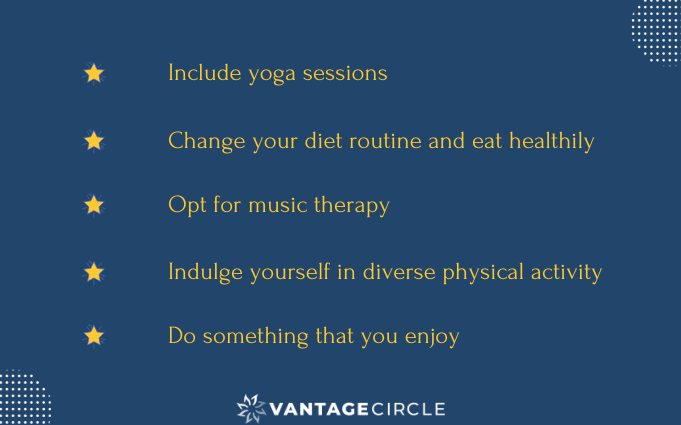
Well, the choices are subjective. It will differ from person to person. However, one must focus on things that make one happy and content. It will help in relieving stress and work better.
3. Self-Motivation

Well, this one had to be included. Self-management seldom starts unless a person is motivated.
Work seems difficult if a person is not motivated and enthusiastic enough to do it. On top of that, it is also essential that the work aligns with the persons’ capabilities. The job should interest them and help them grow in the long term.
And to kickstart your motivation in doing a particular job, you can start by-
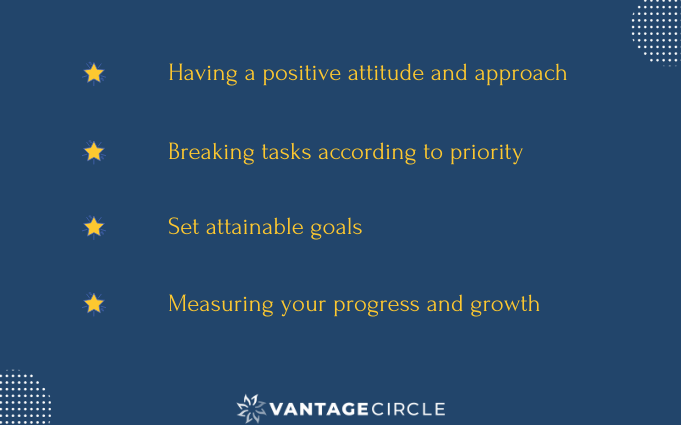
However, a large part of it is psychological. If you can prioritize your work, you will eventually complete it. You will give importance to the things that will improve you as a person.
Recommended Resource: Employee Motivation: A Guide That You Need
4. Organizing Skills

Your ability to structure your work and organize it will define your discipline. It is a vital part of your self-management skills.
A disciplined attitude will help you systematically do things. This enhances your ability to complete tasks within the time frame and accomplish efficacious accolades.
To keep check of the organizing skills you can-
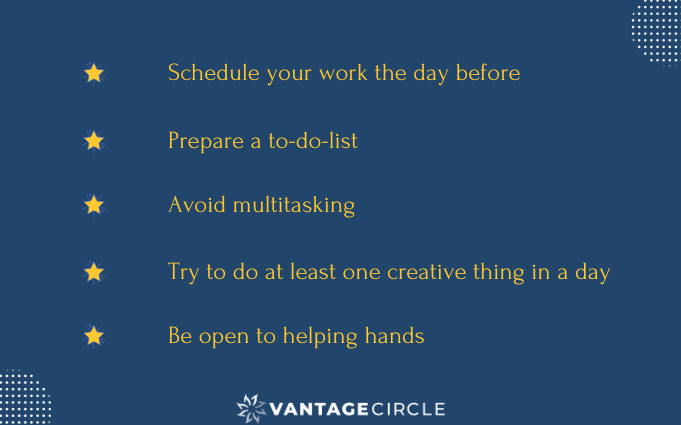
It is crucial that you find comfort in what you are doing. This will give you a clearer picture of how to plan for the future and organize your tasks accordingly.
Also Read: 10 Ways To Develop Organizational Skills Among Employees
5. Accountability

Self-management starts when you keep your words and convert them into action. This creates the ability to become accountable and responsible.
When you become responsible, it builds trust in the workplace. People can rely on you and seek your help during tough times.
The main aim is to-
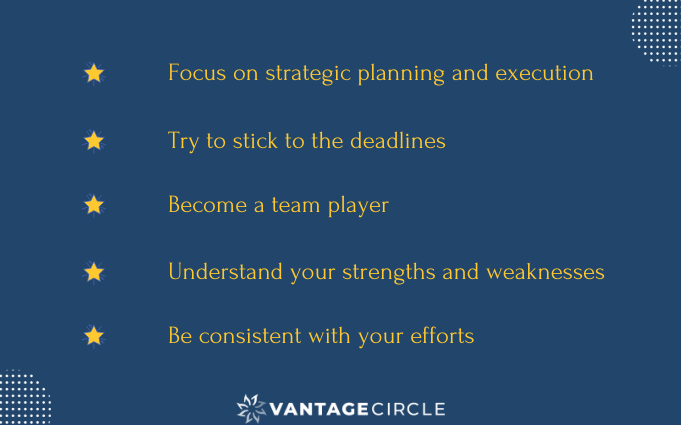
The trait of being accountable might seem overwhelming. But with experience, you get to understand the crucial role it plays in self-improvement. It will also help in training yourself to be a future leader.
6. Self-Awareness

Self-awareness is the conscious knowledge of one’s feelings and character. When you are self-aware, you can have a significant impact on the work environment. Remember that it can go both ways. Your impact can be either positive or negative.
It might feel that self-awareness is an involuntary action. But on the contrary, you can control it and become a better person at work.
To become more aware of yourself, you can-
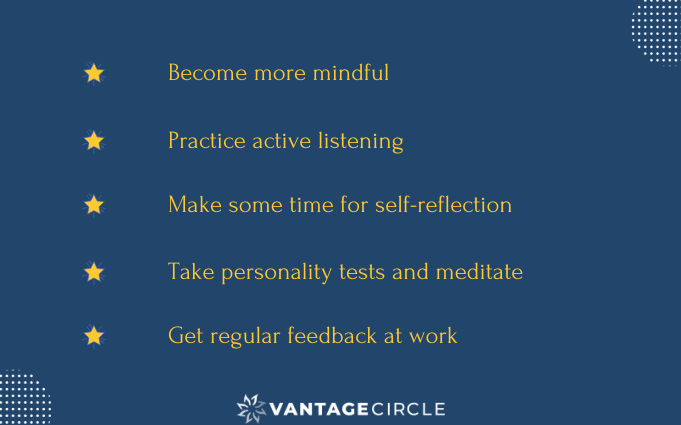
With the correct approach and a clear idea about who you want to become, your self-awareness increases with time.
Summing it Up
With time and experience, you can elevate your self-management skills. Just remember that you need to adapt to changing dynamics. Modernize with the corporate culture and keep yourself updated.

















